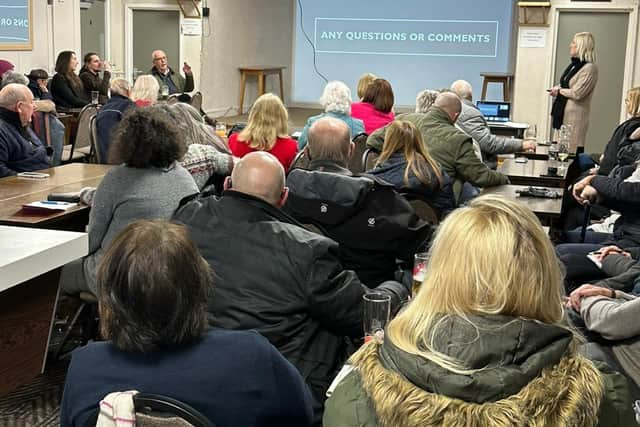Residents form group to block controversial recycling plant on Yorkshire border
The plant, situated in Worksop, is set to use a technique called pyrolysis, which heats waste plastic to high temperatures to form an oil used to produce new plastics. Pyrolysis has proved controversial, with groups including Zero Waste Europe stating that it can cause emissions which are harmful to the environment and human health.
Zero Waste Europe does not classify pyrolysis as a recycling technology due to intensive techniques required to make the oil suitable for use. A report from the group claims that only 2 per cent of the plastic waste used will eventually make it into the final “recycled” product.
Advertisement
Hide AdAdvertisement
Hide AdRefiniti and Envale, the companies behind the proposal, said that the “fundamental aim” of the project is to reduce the environmental impacts of plastic and residual waste, reducing the level of harmful substances that would otherwise be put into the environment. They added that the plant would use “innovative” technology which solves many of the issues raised by Zero Waste Europe.


Around 60 people attended a meeting held last Thursday to discuss plans to block the proposal.
Helen Hall, a resident in the nearby village of Rhodesia, said: “The pollution in the atmosphere shouldn't be anywhere near residential homes. Both myself and my husband are retired, but we’re thinking about the future health of our children and our grandchildren who all live within the area.”
Lauriane Veillard, chemical recycling and plastic-to-fuels policy officer at Zero Waste Europe, noted how pyrolysis plants can potentially emit harmful airborne dioxins.
Advertisement
Hide AdAdvertisement
Hide AdShe added: “What we see is that there are often a lot of air pollutants. The thing is that until now there has been no real monitoring, and without concrete monitoring it is hard to really know that the process is safe.”
Refiniti and Envale noted that if planning permission for the site is granted, the facility will require a Small Waste Incineration Plants Permit to operate, and that emissions from the facility will be “strenuously monitored”.
A number of residents also raised concerns about potential explosions at the site. Explosions have occurred at a number of pyrolysis plants in different countries, including in Denmark, where a 2021 explosion resulted in the complete destruction of a plant.
Refiniti and Envale said that public safety and environmental protection are of “paramount importance”, adding: “The planning application will provide an overview of how risks of major accidents have been considered and mitigated.”
Advertisement
Hide AdAdvertisement
Hide AdPlans for the plant also include an energy recovery centre, which Envale says could potentially power over 650 homes annually.
Nottinghamshire County Council said that once received, the planning application will be “subject to consultation and publicity and all comments received will be taken into account as part of the decision-making process.”
Comment Guidelines
National World encourages reader discussion on our stories. User feedback, insights and back-and-forth exchanges add a rich layer of context to reporting. Please review our Community Guidelines before commenting.